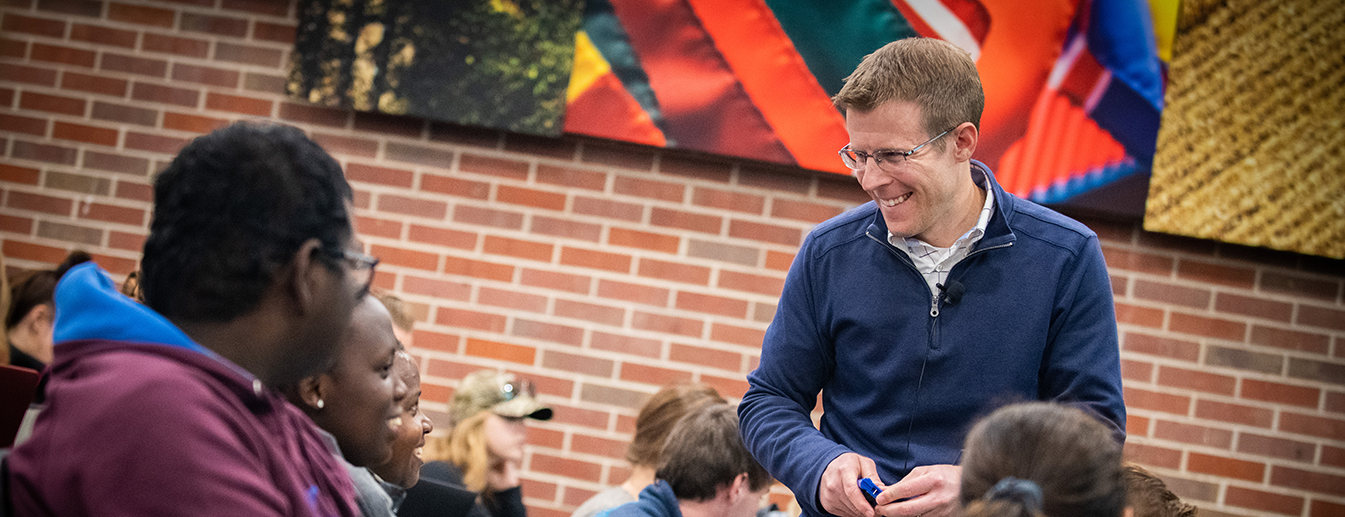Although rewarding, teaching is complicated and often challenging. What works for one instructor in one context may not work in another. This means that it may helpful to foster a diverse support community as you search for the right approaches in your own context. The CTT's Instructional Designers have a valuable breadth of experiences and awareness of teaching research to serve as a foundation for your teaching support. You may also appreciate turning to peer instructors to dig deeper into specific teaching challenges and hear some new approaches. The following individuals have put significant effort into reflecting on their teaching practices and have agreed to provide peer teaching support. Additionally, if you would like to make use of the peer observation process, consider one of these instructors. Please contact the individuals below directly if you would like to talk about a specific aspect of teaching.
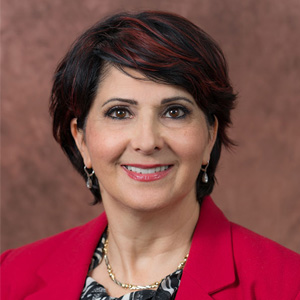
Jena Asgarpoor
Professor of Practice & MEM Director, Durham School of Architectural Engineering and Construction
Teaching Experience: 32 years
Format: Asynchronous web-based, engineering management, quality management, operations and management science
Key Interests: Assessing Learning, Encouraging Student Agency in the Classroom, Online Teaching
Passion for student success. Partnering with the students in their learning journey. Responsiveness and empathy. Letting students co-create their learning and educational experience
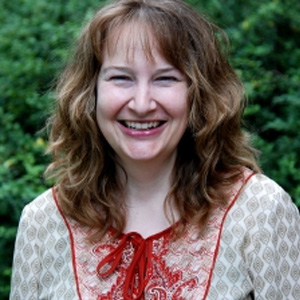
Erin Bauer
Graduate Lecturer, Entomology
Teaching Experience: 8 years
Online education (grads and undergrads); developing creative assessments
Key Interests: High-Enrollment Teaching, Lecture-Based Teaching, Online Teaching, Experiential Learning
In my position as Graduate Lecturer in the Entomology Department, I teach several different online undergraduate and/or graduate classes, including three Forensic Entomology related courses, Insect Biology, IPM in Sensitive Environments, and an upcoming Cultural Entomology course. I also coordinate student Independent Studies and capstone MS Projects.
Taking online classes and TAing as a MS student were very positive experiences for me, and these really introduced me to all sides of online education…learning a LMS and submitting my own tests or papers through that; corresponding with other students; and designing or grading assignments. I’ve had the opportunity to refine different approaches and apply what I’ve learned to my own online teaching.
What I have discovered through teaching for several years is that ensuring successful student learning in a virtual environment can be even more critical than in a physical classroom. Through the very nature of distance courses, students are aware that they will likely not see the instructor in person, and that they need to have the technological resources and ability to complete their coursework online. The instructor also knows they need to connect and interact in a way that ensures students will still find them approachable.
With these things in mind, my approach is to address the unique characteristics of online education in a way that will most benefit students. This may include developing a syllabus that lays out all significant expectations of the course clearly and regularly updating students on the Announcements board or through group emails when a new lecture has been posted or that tests or assignments are due. It’s also helpful giving positive feedback about how students answered or addressed an assignment. In addition, I frequently remind students that they can email me at any time, as this is the prime communication method in online courses.
An advantage to online education is that the ease of document exchange (assignments submitted through Canvas or email) can allow me to be more flexible with students than a teacher might be in a normal classroom setting. For example, I may encourage students to correct mistakes they made on an assignment, resubmit, and gain more credit. Students have commented about how they appreciate the opportunity to make improvements.
Student learning styles in online courses is likely to be varied. This has a lot to do with the demographics of the students in these programs. Many online students are non-traditional (usually in 30s-50s age range), working full time or in the military, living in another state or country, and able to take limited classes a semester. These students may have been away from college for a while and be unfamiliar with online education but wish to take this format because of its flexibility and their geographical location. Learning styles of these students tend to be more traditional, and they may require more help from the instructor. Younger students often take online classes for convenience and may be more familiar with technological tools. Having a mix of students at different levels in one course can be challenging, but I've found that good communication between instructor and student is key in reducing any obstacles that may arise.
I also like to encourage creativity in my students. I offer assignments where they can express themselves (such as stories or artwork) or do something different (e.g., play an educational game). Overall, while the understanding of basic facts is essential to comprehending a subject, true learning requires the next steps of analysis and synthesis. By offering a variety of assignments and instructional formats (papers, videos, narrated lectures, etc.) and providing significant feedback, I feel students can make the jump from simple factual knowledge to applied knowledge that enhances learning and contributes to their field of study.
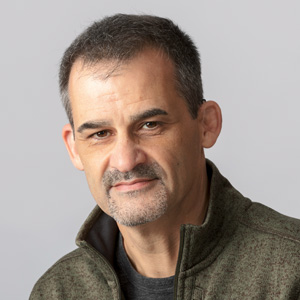
Ian Borden
Associate Professor of Theatre Studies and Performance, Theatre Arts & Film
Teaching Experience: 23 years
History of Fine Arts and its Effect on Society, Renaissance Theatre, Performance and Stage Movement (Certified Stage Combat Teacher), Online Teaching
Key Interests: Discussion Facilitating, Assessing Learning, High-Enrollment Teaching, Teaching with Technology, Lecture-Based Teaching, Encouraging Academic Honesty, Inclusive Teaching, Encouraging Student Agency in the Classroom, Online Teaching, Group Work, Creating New Classes
One of the best things I ever heard about teaching came from my first acting teacher. He noted that "we are all on the same road, he's just further along on it." That's a very humble approach that I've tried to emulate by breaking down barriers between the instructor and the students.
Another great thing I heard came in my first year as a faculty member. I was complaining to my colleague about my students, and she simply said, "Ian, we were the good students." Since then I've tried to make sure that my teaching reaches every student in my class, especially those that are struggling with how to be a university student. It's a set of skills that many students do not have in terms of preparation, that is exacerbated without family support. That's the teaching that happens outside of the ordinary classroom environment.
I have also been involved in a lot of diversity development for UNL over the last five years, and as someone who frequently teaches classes to students from all parts of the university, I've realized how important it is to be willing to change. The biggest lesson there was that if the canon isn't working, change the canon. Although it can be a little bit scary to move away from the ways that I was taught, I found that re-thinking what was canonical to be the simplest and most effective means of reaching more of my students.

Chad Brassil
Associate Professor, School of Biological Sciences
Teaching Experience: 19 years
Inclusive Pedagogy; Active Learning; Recorded Lectures
Key Interests: Assessing Learning, Lab Teaching, High-Enrollment Teaching, Teaching with Technology, Lecture-Based Teaching, Inclusive Teaching, Group Work
My current area of interest is using data to inform inclusive teaching practices. On of the strategies most supported by evidence is active learning, which I have been in a continual effort to incorporate into my large enrollment courses. I've benefited a number of times from co-teaching experiences, learning from each colleague.
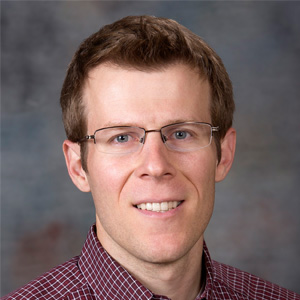
Brian Couch
Associate Professor, School of Biological Sciences
Teaching Experience: 11 years
Programmatic assessment, assessment motivation, question formats, formative assessment, and assessing science practices
Key Interests: Assessing Learning, High-Enrollment Teaching
Teaching LIFE 120 has given me familiarity with the logistics of running a large, introductory course. Some unique aspects of this course include in-class clicker-type activities, multiple-true-false questions, study contracts, and teaching assistants.
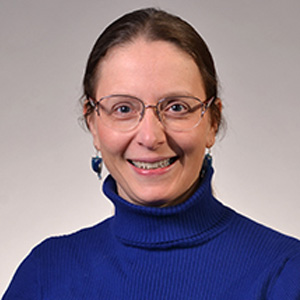
Cynthia Cress
Associate Professor, Special Education & Communication Disorders
Teaching Experience: 29 years
Language Development & Disorders, Communication Assessment & Intervention, Autism, Early Intervention, Counseling/behavior management
Key Interests: Discussion Facilitating, Assessing Learning, High-Enrollment Teaching, Lecture-Based Teaching, Inclusive Teaching, Encouraging Student Agency in the Classroom, Experiential Learning, Group Work
I prioritize individual engagement with students even in large undergraduate classes and this is reflected in my course evaluations of students feeling valued and included in courses. All my undergrad and grad courses incorporate multiple examples of applications of course content, both during class and in out-of-class assignments. I value critical thinking activities to challenge students in achievable ways to help them discover that they can address the unknown that will occur in their professional lives.
My effectiveness in engaging meaningfully with undergraduate students is partly reflected in 8 Parent's Recognition Awards so far. I was also honored with the CEHS Distinguished Teaching award in 2007 to reflect overall quality and effectiveness of teaching. My skills at accommodating change and challenge were noted in being asked to present workshops on hybrid teaching strategies in 2020 after rapidly recalibrating to include unfamiliar online teaching strategies from basic in-person blackboard and overhead teaching prior to that point. I have served as teaching mentor for multiple faculty within SECD and enjoy stepping into someone else's teaching style to help them maximize the effectiveness of their own teaching strategies.
I firmly support the individualization of faculty as well as student learning styles and facilitate that in whatever ways I can. I also continue to evaluate and modify my own teaching strategies based on peer and student input and have been willing and able to entirely change models of instruction, given our recent departmental innovation of team teaching courses that were previously individually taught. I enjoy learning from my colleagues as well as students and never consider my courses or teaching as "done".
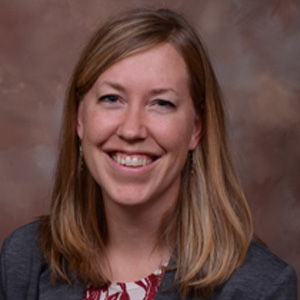
Jenny Dauer
Associate Director for Undergraduate Education in SNR, Associate Professor in Science Literacy, School of Natural Resources
Teaching Experience: 24 years
Active learning, cooperative learning, inclusive teaching, science literacy, issues-based teaching, experiential learning
Key Interests: Discussion Facilitating, Assessing Learning, High-Enrollment Teaching, Lecture-Based Teaching, Inclusive Teaching, Encouraging Student Agency in the Classroom, Experiential Learning, Group Work
I'm the lead instructor of SCIL 101: Science and Decision-making for a Complex World. The course is based in skill development over specific content. The course relies on teaching techniques in active learning, cooperative learning, learning for "transfer," inclusive teaching, issues-based instruction, theories of motivation, etc.
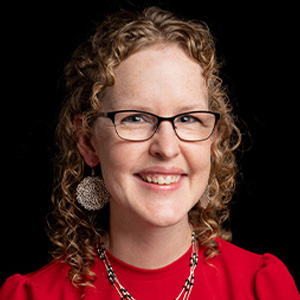
Amanda Gonzales
Associate Professor of Practice, Accountancy
Teaching Experience: 10 years
Facilitating Effective Team Projects
Key Interests: Group Work
I seek to inspire my students toward lifelong journeys of self-discovery, growth, and confidence in pursuing opportunities that are consistent with their values, priorities, and talents. I'm currently investigating whether students’ explicit recall of their individual and collective strengths as part of team charter development enhances measures of team effectiveness such as team cohesion, member satisfaction, and performance, while also considering best practices for team projects more broadly. I've also explored and implemented backwards course design, student choice within individual projects, and early assessment of prerequisite knowledge.
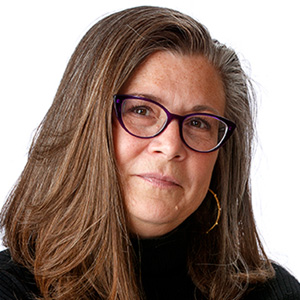
Chris Graves
Assistant Professor, Editorial (News-Editorial)
Teaching Experience: 3 years
Experiential learning, Student engagement -- especially in long classes (2+ hours). Organization of Canvas and teaching materials. Group work in class. Facilitation class discussion.
Key Interests: Discussion Facilitating, Encouraging Academic Honesty, Inclusive Teaching, Encouraging Student Agency in the Classroom, Experiential Learning, Group Work
Why do I teach? For the same reason I became a journalist. I am a curiosity-addict. I believe there is no end to improvement. I seek, question and wonder how I might be better, how I might do better. As a teacher, I work to engage and inspire students to be question askers and knowledge seekers.
Further, I believe I am on a journey with my students and with the dawn of each semester we enter into a learning relationship. I view the classroom as a place for students’ brains to hurt and for their hearts to swell. It should also be a place that is supportive, empathetic and safe as they learn to practice curiosity. The work ought to be challenging and meaningful and complicated and difficult. I want my classroom to be where empathy and understanding and an appreciation for differences is not only encouraged, but modeled — we learn, too, by watching and then replicating. The classroom, and certainly my actions as the instructor, should be a model for what we want for our larger communities.
I bring three core principles into the classroom and into my teaching: Learning by doing, practicing curiosity and the art of listening.
I view failure as an important step toward success. In practice, that means I spend most classroom time on exercises (both individual and group) where students apply/practice concepts and then outside of class continue to work on those skills. Students are encouraged to resubmit written work in all they do. This means a ton of grading and re-grading, but their work continues to improve as does their self-esteem.
I taught for nearly five years as an adjunct instructor at Miami University in Oxford, Ohio. I am entering my third year of full-time teaching at UNL. I teach primarily beginning reporting, writing and editing courses. This past year, I became the lead instructor for a 400-level, international journalism program and I am in the midst of learning to evaluate my teaching at a higher level. I teach editing, reporting, writing as well trauma-informed reporting practices, solutions journalism and overcoming bias in reporting.

Andrew Hanna
Assistant Professor of Practice, Management
Teaching Experience: 5 years
Entrepreneurship, Management (Organizational Behavior, Business Psychology)
Key Interests: High-Enrollment Teaching, Experiential Learning, Teaching with Technology, Lecture-Based Teaching, Encouraging Student Agency in the Classroom
As an instructor in the UNL College of Business, Andrew teaches MNGT 360: Managing behavior in organizations, ENTR 421: Identifying and exploring entrepreneurial opportunities, ENTR 321: Entrepreneurship and innovation in organizations, MNGT 398: Global Startup Communities: Entrepreneurship in Rwanda, MNGT 361: Human resource management, and MNGT 475: Business strategies. He currently serves as a faculty advisor for the Startups UNL entrepreneurship student organization and annually leads an entrepreneurship-focused study abroad to Kigali, Rwanda, where students explore the entrepreneurial opportunities of emerging economies. As an instructor, Andrew's main focus is on fostering a culture of radical transparency in the classroom; an idea he maintains is the key to the great experiences his students have reported in his past classes. As a doctoral student and faculty member, Andrew has received multiple nominations for the College of Business teaching award, winning the award in 2021.
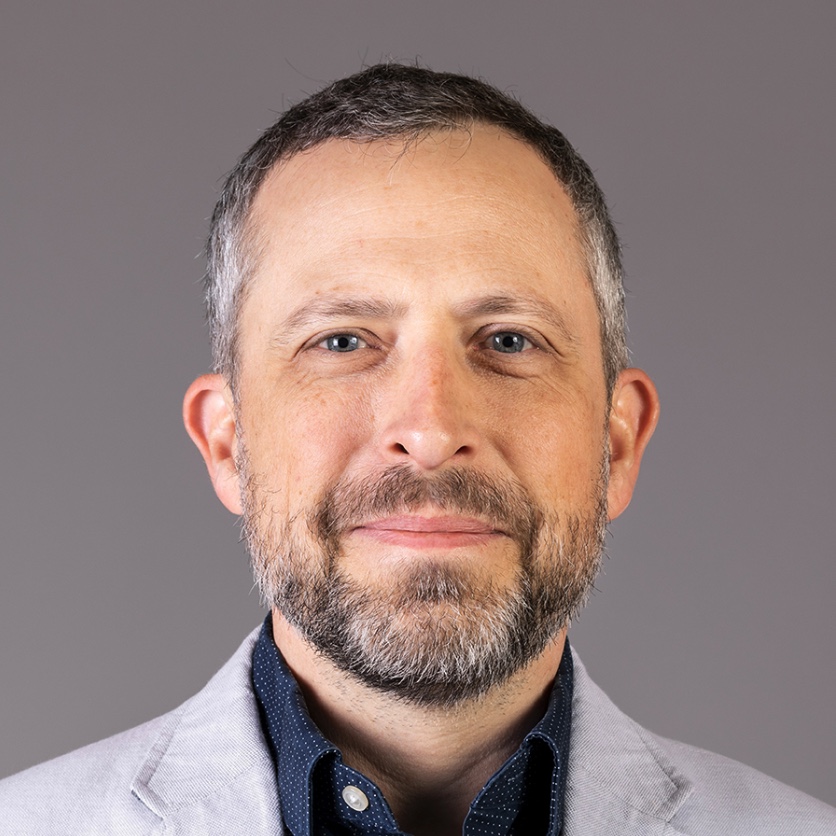
Deryl Hatch-Tocaimaza
Associate Professor, Educational Administration
Teaching Experience: 16 years
Asynchronous learning communities, graduate education, mentoring, writing as a process
Key Interests: Inclusive Teaching, Encouraging Student Agency in the Classroom, Online Teaching
Dr. Hatch-Tocaimaza teaches courses in the areas of higher education administration, community college leadership, and research methods. With these programs offered online at UNL, his teaching and mentoring has been primarily accomplished at a distance. This has led Dr. Hatch-Tocaimaza to develop innovative methods to foster virtual learning communities and techniques for reflective practice.
An area of exploration is in techniques for teaching writing as a process, and the formation of a researcher identity and competencies among graduate students who are also working professionals. Dr. Hatch-Tocaimaza received the 2019 Outstanding Teaching Award from the UNL College of Education and Human Sciences.
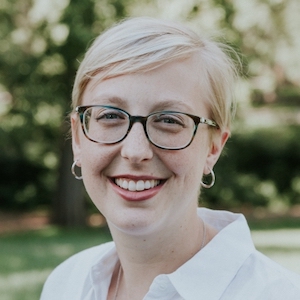
Courtney Hillebrecht
Professor; Hitchcock Family Chair in Human Rights and Humanitarian Affairs, Political Science
Teaching Experience: 19 years
Inclusive excellence, large-enrollment lectures and student engagement, balancing teaching with research and administrative demands
Key Interests: Inclusive Teaching, High-Enrollment Teaching, Lecture-Based Teaching, Balancing Teaching with Other Work
I teach a variety of courses in international relations, international law, human rights and comparative politics. My teaching philosophy is simple: I seek to challenge students to think critically and to engage with the material we discuss in class as well as contemporary politics. I place a large emphasis on improving my students’ writing, analytic, research and presentational skills and helping them understand the connections between international politics and their daily lives. I often rely on simulations to help students sharpen their skills and link concepts with practice. I center all of my teaching on the principles of inclusive excellence.

Libby Jones
Professor & Assoc. Chair for Undergraduate Programs, Civil Engineering
Teaching Experience: 26 years
Alternative grading, active learning, flipped courses
Key Interests: Discussion Facilitating, Teaching with Technology, Inclusive Teaching
I’m a Professor in the Civil & Environmental Engineering Department where I also serve as the Associate Chair for Undergraduate Programs.
My approach to teaching is to focus on student learning and student success. I want students in my courses to finish courses with me having learned, having had an opportunity to demonstrate their learning achievements, and believing their learning achievements were fairly evaluated. I also want them to be more curious about the subject and continue to learn about it even if they never take another formal course in it. I am always working to improve the success of my students.
My teaching experiences range from large first-year courses, to required discipline courses, to small graduate seminar courses. I’ve taught traditional in-person courses, courses offered by interactive TV between Lincoln & Omaha, and more recently, an asynchronous online course offered in the January pre-session. I continue to modify my courses to make them more active and more inclusive. Things I’ve tried and found useful include think-pair-share, in-class polling, and peer instruction. I continue to develop my courses so that as a class, we spend the limited in-class time working on more difficult concepts instead me lecturing on more basic material that can be covered in through pre-class readings and other activities. Some might refer to this as a “flipped course”. More recently, I’ve also worked to make my classes more inclusive by changing how I assess student learning, how I grade, and my course policies. Other things I’m also working to improve in my classes include student reflection, experiential learning, and student agency. Beyond my courses, I’m also leading our department’s effort to revise our curriculum to better prepare our students to be successful engineers throughout their careers. We are doing this by incorporating more experiential learning throughout all four years.
I’ve participated in many faculty development initiatives at UNL including the Faculty-led Inquiry into Reflective and Scholarly Teaching (FIRST) program, the CTT’s Reflective Practitioner Program, the College of Engineering’s Teaching Fellow Program, and the Faculty Fellows for Student Success Program run by Amy Goodburn.

David Karle
Associate Professor and Director of Architecture, Architecture
Teaching Experience: 14 years
Experiential Learning in a Design Studio, Student engagement in a lecture course.
Key Interests: Assessing Learning, Lab Teaching, Lecture-Based Teaching, Inclusive Teaching, Experiential Learning, Discussion Facilitating
Teaching Philosophy
As a faculty member and now administrator, I facilitate a reciprocal dialogue between educational, professional practice, and industry while promoting student and faculty success beyond the classroom. As a twelve-year architectural educator with seven years of professional experience ranging from architectural offices in Ann Arbor, Michigan, Atlanta, Georgia, and Sydney, Australia, I actively encourage each student to think creatively and critically about design, the ground, and the space within the architectural discipline.
My approach is teaching, and student success has not changed. Architectural design is fundamentally about designing spaces through creative problem-solving. Traditionally, the practice and education of architectural design are taught using a project-based method in a studio or lab environment. In the studio, under the guidance of the instructor students test ideas while generating and evaluating alternatives to ultimately formulate ideas into buildings. This is often referred to as the apprentice model, which is rooted in collaboration between professional practice and the academy. The studio environment establishes a foundation that young graduates take to the profession. Therefore, balancing design education with the skills required for success in practice is something every faculty member must negotiate. With this in mind, my teaching philosophy aims to facilitate reciprocal dialogue between educational and professional practice while promoting student success beyond the classroom.
Educational Leadership: Student Success Beyond the Classroom
My educational leadership encompasses two categories: establishing and coordinating the SGH + Dri Design student scholarship/award, and publishing papers on the Scholarship of Teaching and Learning (SOTL) in journals and conference proceedings. In these categories a sustained record of excellence will be demonstrated with a primary focus on facilitating reciprocal dialogue between education and professional practice while expanding learning beyond the classroom.
The ACSA, AIA-Nebraska, the University, and the College of Architecture recognized my curricular efforts by awarding me the 2022 Association of Collegiate Schools of Architecture Practice and Teaching Honorable Mention Award (co-authored with Mark Bacon), 2021 AIA-Nebraska Architectural Design Educator Award, 2020 UNL Annis Chaikin Sorensen Award for outstanding teaching in the humanities, the 2019 Faculty Award for Excellence in Teaching for a meritorious and sustained record of excellence in teaching and innovation related to a teaching program, and the 2017 Hawthorne Distinguished Faculty Award for significant contribution to the overall development of the College of Architecture, UNL or its programs.
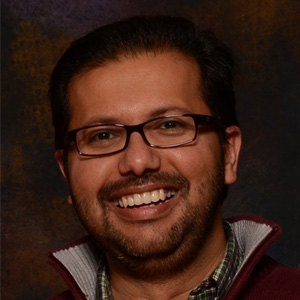
Deepak Keshwani
Associate Professor and Director of Undergraduate Programs, Biological Systems Engineering
Teaching Experience: 13 years
Team-based learning, First-Year retention and student success, inclusive teaching practices
Key Interests: Discussion Facilitating, Encouraging Academic Honesty, Inclusive Teaching, Group Work
- Integrating retention and student success initiatives in the First-Year classroom
- Using CATME to facilitate team-based learning
- Current exploration: Systems-thinking and modeling as a learning tool, promoting a culture of academic integrity
- Current challenge: Assessment of in-class activities
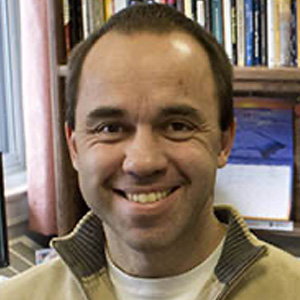
Fabio Mattos
Associate Professor, Agricultural Economics
Teaching Experience: 16 years
Experiential Learning
Key Interests: Experiential Learning, Online Teaching, Inclusive Teaching, Lecture-Based Teaching, Teaching with Technology, Assessing Learning
I have been teaching for about 15 years, initially during my PhD program in the University of Illinois and then as a faculty member in the University of Manitoba and University of Nebraska. During this time, I have also had the opportunity to teach short courses in the University of Sao Paulo. More details about my teaching experience are listed at the end of the document.
My general approach to teaching is based on two points. First, it is important that students realize that they are taking the course to learn something and that teachers are there to help them learn. Students should feel that they are working together with teachers, not against each other.Therefore, students need to feel that teachers are happy to be there, willing to help and excited to see students progressing through the course. For example, I often share with students things that I like to do and stories about my life as they fit in our conversations or discussions in class. I don’t force it, but rather let it happen naturally. I also check in with students regularly, especially the ones that don’t come to class often, are missing assignments or have poor grades. In these situations, I reach out just to let them know that I am interested in their learning and want to know how I can support them.
Second, I believe that we all learn more effectively when we enjoy what we are doing and can apply what we learn to real-world events and problems. Commodity markets are the general background in all my courses, so I always design discussions and assignments based on current events in commodity markets. We talk about what is going on in the markets and use what we are learning in class as the lead. In assignments, for example, I ask students to explain why a certain event is happening in commodity markets and what the implications will be. I also prepare simulations in which students take the role of a farmer (or a market analyst, or a commodity trader) and have to make decisions about buying or selling commodities using what they are learning in class.
Several topics interest me in teaching. Currently, I am especially interested in the following. All my courses have two sections. One is in-person and the other is online. So I am constantly thinking about these two delivery methods and how students can learn effectively regardless how they take the course. In addition, I have been thinking about ways to improve learning assessment, engagement and grading.
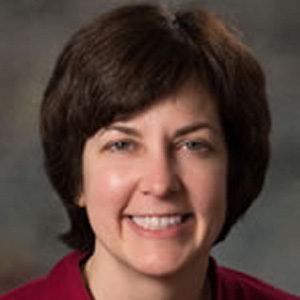
Debbie Minter
Associate Professor, English
Teaching Experience: 31 years
Writing to enhance active learning
Key Interests: Encouraging Academic Honesty, Inclusive Teaching, Encouraging Student Agency in the Classroom, Group Work
I honestly don't know that my pedagogical approaches are unique but I do have a lot of experience using/teaching writing in the college classroom. The classes I teach are typically ACE 1 (required vs freely chosen). So I have developed some strategies for working with reluctant writers as well as writers who struggle with the work of writing. Writing is both a tool for organizing and reflecting on new knowledge (as well as our inner thoughts) and it is also a product that is sometimes judged according to disciplinary standards. So it is important for us as teachers to have a sense of why we are assigning it and what we hope students will take from the work of the assignment. To save ourselves time and energy, I argue for focusing our response-work on the learning we want to see. There are response strategies that minimize the time a teacher must spend with each individual piece of writing. Sharing some of these strategies might help more teachers use writing in their classrooms across campus and help of us to develop together additional new strategies. I'd really like to be a part of that!
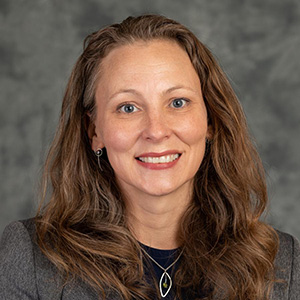
Jennifer PeeksMease
Assistant Vice Chancellor of Inclusive Leadership and Learning, Office of Diversity and Inclusion
Teaching Experience: 20 years
Inclusive Classrooms and Curriculum and Community Service Learning
Key Interests: Discussion Facilitating, Inclusive Teaching, Encouraging Student Agency in the Classroom, Experiential Learning, Group Work
My teaching experience spans one high school and six institutions of higher education. I'm particularly skilled in strategies and tactics for creating inclusive classrooms and experiential learning activities (including community service learning). I focus on both small shifts and habits that can enhance inclusivity and student engagement, as well as attending to the semester long arch in terms of building relationships toward the goals of engaging challenging topics and fostering a willingness for vulnerability that allows for meaningful growth.
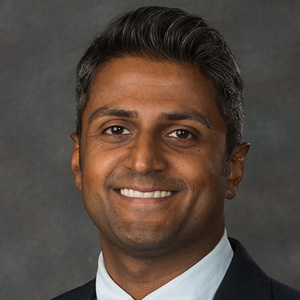
Vish Reddi
Assistant Professor of Practice, Construction Management
Teaching Experience: 7 years
Built Environment, Engineering, Architecture
Key Interests: Assessing Learning, High-Enrollment Teaching, Teaching with Technology, Inclusive Teaching, Online Teaching, Experiential Learning
Construction Management, Industrial Systems in Facilities.
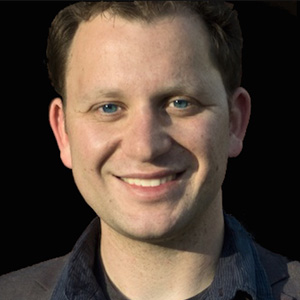
Greg Simon
Associate Professor of Composition/Jazz Studies , School of Music
Teaching Experience: 11 years
Creative exploration in individual/classroom settings, alternative assessment strategies, project-based pedagogy, empowering novice learners
Key Interests: Discussion Facilitating, Lecture-Based Teaching, Inclusive Teaching, Encouraging Student Agency in the Classroom
I have taught in virtually every setting the School of Music offers, including lecture-based classes, one-on-one lessons, and ensemble learning. My special interest in developing teaching strategies applicable to not only professionals-in-training but novices and first-time learners has allowed me to reach a broad spectrum of students, from nonmajors to graduate students who have won awards for their artistic work. I have published writings on teaching in the College Music Symposium and the Oxford Handbook series, and in 2020 was the Hixson-Lied College Curriculum Development Award.
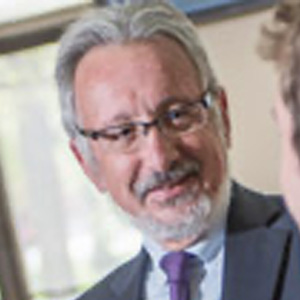
Rob Simon
Associate Professor of Practice, Marketing
Teaching Experience: 19 years
Experiential and application oriented teaching, connecting classroom experiences to industry experiences, and case-based teaching.
Key Interests: High-Enrollment Teaching, Experiential Learning, Discussion Facilitating, Group Work
I am very focused on experiential and application oriented teaching. I come from a business background and I want to bring that experience into the classroom. In my smaller classes I have student work with real clients on real projects or problems. I also use numerous cases in those classes, because they can to some extent mimic the business and managerial experience. In these smaller classes my role is a facilitator and coach as well as a teacher. I am interested in what the students learn today that will apply in their career 5 years from now.
I try to make my smaller size classes as experiential as possible. I have and continue to work with businesses, non-profits, and NGO's to bring that real world experience into the classroom. I have developed a relationship with businesses in Lincoln and Omaha to where I now facilitate special classes where the students work directly with some of these organizations in project based classes. I also try to focus on giving my students the interest in life long learning. It is not just what you learn today, but how you become a lifelong learner.
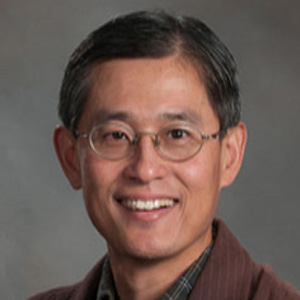
Leen-Kiat Soh
Professor, School of Computing
Teaching Experience: 22 years
Computational Thinking, Introductory Computer Science, Problem-Based Learning, Teaching Using Games
Key Interests: Discussion Facilitating, Assessing Learning, High-Enrollment Teaching, Teaching with Technology, Lecture-Based Teaching, Experiential Learning, Group Work
- Active learning with in-class group work, engaging topics.
- Use of technology and games
- Use of insights about our daily activities to prompt students to reflect and apply
- Understanding of the growth mindset and encouraging students to adopt that mindset
- Understanding of student learning strategies and learner profiles and identifying patterns and behaviors to detect and mitigate
I have published quite extensively in CS education research as well as in self-regulation and motivation.
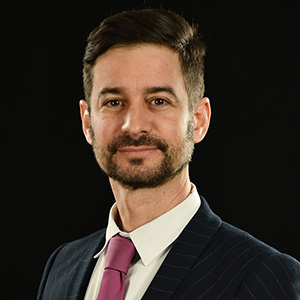
Roberto Stein
Associate Professor of Practice, Finance
Teaching Experience: 13 years
Technology (Canvas, video tools, advanced PowerPoint, etc.); course design; cheating prevention and detection
Key Interests: Assessing Learning, High-Enrollment Teaching, Teaching with Technology, Online Teaching
I've taught almost every type of course imaginable, including large and small sections, online and classroom, graduate and undergraduate. Over the years I've learned a lot about effective course design, be it by participating in UNL's "Peer Review of Teaching" program, or working with UNL's Instructional Designers to develop new courses. I like to combine a good design approach with technology solutions that make life easier for both, students and instructor, while keeping the overall cost and complexity of the tools used as low as possible.
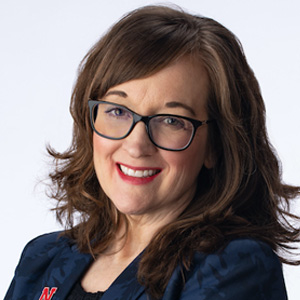
Jessica Walsh
Assistant Professor, Editorial (News-Editorial)
Teaching Experience: 11 years
Ice-breakers & engagement activities; community building; mastery grading
Key Interests: Experiential Learning
Some strategies I use include ice-breaker and engagement activities to start each in-person class and build community. I believe students learn better when they feel safe and part of a community. I also believe in giving short lectures, followed by in-class/peer-to-peer work applying those concepts followed by an at-home graded assignment. Finally, I allow lots of rewrites in my classes that are usually graded at full credit and not averaged with a previous grade to give students a chance to learn from their mistakes without it hurting their grade.
I want my students to do hands-on work in the classroom - this is not unique. I also try to link what we are doing in the classroom and homework to scenarios and dilemmas they would face in internships and jobs - so they can see how they'd use the skills they learned.
Some innovations I've recently employed: Including video interviews with working journalists and editors where they discuss common problems they encounter (these are linked to a short quiz); creation of TikTok-style videos in class to demonstrate knowledge and build community; assignment to find someone in their future field and write about them (great for networking!); "mental gymnastics" like playing Wordle, Spelling Bee or other language-based games to start class.
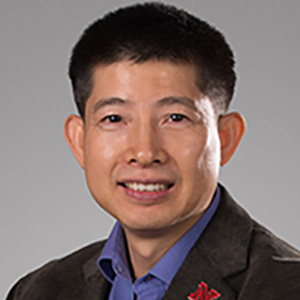
Jiangang Xia
Associate Professor, Educational Administration
Teaching Experience: 16 years
Online teaching of applied quantitative research methods and related courses
Key Interests: Teaching with Technology, Lecture-Based Teaching, Online Teaching, Experiential Learning
To support student success is the goal, and I support students from several aspects. Learning quant methods online is challenging, however, I believe I have figured out a way that has turned the challenge into advantages. Traditional in-person quant methods courses are challenging as well for many graduate students, and unfortunately I was one of them. The challenge is students can't remember the content after class and there is no way they can retrieve the teaching. But for online teaching, it is possible. In my courses, I recorded step-by-step lecture videos and uploaded to Canvas. Students found my videos the most helpful to them and many of them told me they watch the videos several times to learn the content and complete the homework assignments. This "re-watchable" feature of online teaching goes beyond the traditional in-person classes and it is particularly applicable for learning quantitative methods. Besides, to support students, I also offer optional live sessions so students can come to chat and ask questions. Student found that very helpful as well. My third approach is to ask students to work on a two-or three-draft final project that is based on their own interest. Students found this assignment very engaging and beneficial. Additionally, I offer some students individual meetings and adapted assignments to accommodate their unique situations or challenges. For example, one student has already failed one quant course previously. And she came to my course since she wanted to give it a second try before she gives up with our program. I realized my course could make a difference in her life. So I have met with her multiple times and offered her feedback of her assignments and offered the revision opportunity. I hold the belief that the grade is not the goal while students actual learning is. So I do not mind giving students the second or third chances if they are willing to take it. This student is one of them and she made it through and now she is able to continue with her dream of earning her doctoral degree. As an instructor, I am really happy for her.
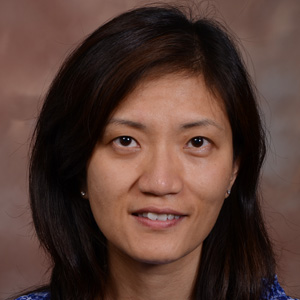
Jing Zhang
Assistant Professor, Biochemistry
Teaching Experience: 11 years
Course-based Undergraduate Research Experiences (CUREs)
Key Interests: Lab Teaching, High-Enrollment Teaching, Experiential Learning
I began to adopt CUREs into biochemistry lab courses in 2016. Compared to the traditional cookbook-style lab, CUREs incorporate key elements of faculty research into lab courses to give all students enrolled in the course an opportunity to experience the process of scientific research. This is an inclusive and high-impact pedagogy because research experiences improve student outcomes including retention and persistence in STEM, especially for students from underrepresented minority groups. I am currently serving as one of the faculty mentors in an NSF-funded CURE national network that involves different types of institutions including community colleges, minority-serving institutions, primary undergraduate institutions, and research-intensive institutions. I want to continue to use my experiences and expertise to provide students an inclusive and equitable quality education in Biochemistry and beyond.
